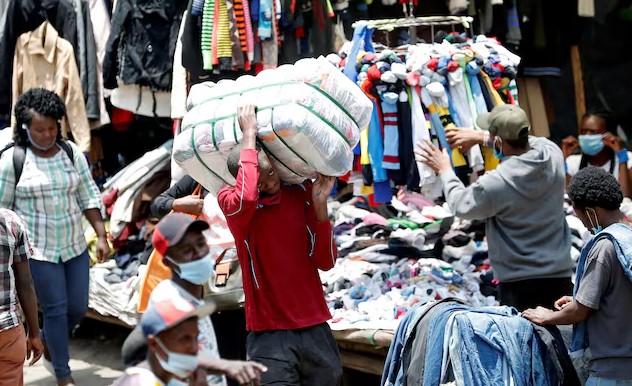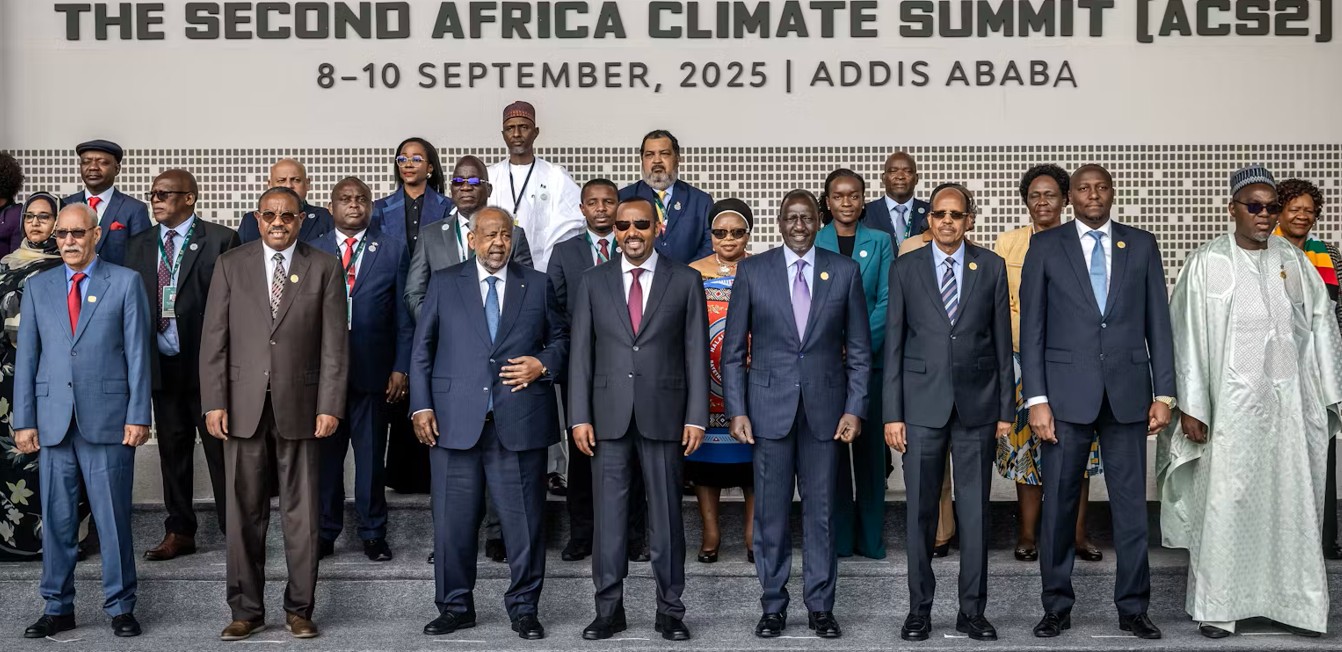Kenyans' love for mitumba clothes raises import value by Sh7bn in a year

Higher quality and relatively lower prices for used attire have continued to drive demand for the merchandise at the expense of locally made clothes.
The demand for second-hand clothes (mitumba) in the country is on the rise, as more Kenyans, mostly from the informal sector, opt for the relatively low-cost commodity.
Picturing this is the latest quarterly data by the Kenya National Bureau of Statistics (KNBS), which shows the value of mitumba imports by traders rose to Sh27.8 billion in the one year to March 2024. This is from Sh20.9 billion in the previous year, representing a 33 per cent jump.
More To Read
- Kenya’s trade deficit widens to Sh413.5 billion as imports outpace exports
- 11 per cent of Kenyans use mobile phones they do not own - survey
- From bargains to burden, inside Gikomba’s growing pile of textile waste
- KNBS launches year-long household survey covering 24,000 homes to guide national planning
- KNBS under fire for ethnic imbalance in hiring as Senate demands recruitment records
- 305 Kenyan diaspora deaths recorded in 2024, new report shows
Higher quality and relatively lower prices for used attire have continued to drive demand for the merchandise at the expense of locally made clothes. This is amid higher margins enjoyed by traders largely in informal markets.
The trend could also be pointing towards a dent in President William Ruto's policy of promoting the local textile industry, tracking back to 2022 when the state proposed a ban on mitumba importation in a bid to grow the local textile.
Huge labour force
The second-hand clothes trade has thrived over the years and has since attracted traders from China, Kenya's top source market, to set base in Gikomba, the largest informal market for mitumba.
The Mitumba Consortium Association of Kenya recently noted that the number of people venturing into the sector is increasing at a fast pace, depicting the important role it plays in revenue contribution and job creation.
A report by the KNBS shows the sector employs approximately two million people, from a total of about 25 million in the Kenyan labour force.
The latest report by the statistics body further reveals that the increased import value of second-hand clothes contributed to pushing up the total import expenditure value in the first quarter of 2024, which went up by Sh94.2 billion compared to the corresponding quarter of 2023.
The bulk of the expenditure was to the Asian continent, inclusive of China, at 64.2 per cent and was valued at Sh439 billion.
This was primarily on account of an increase in imports from far East Asia which rose from Sh247.4 billion in the first quarter of 2023 to Sh312.9 billion in the period under review.
Notably, there were increases in the import expenditure to Malaysia and Pakistan, which more than doubled; and China (38.8 per cent).
This was largely on account of increased importation of crude palm oil and gas oil from Malaysia; rice from Pakistan; and railways or tramways goods vans and wagons from China.
Other trade volumes
In contrast, import expenditure to the Middle East dropped by 13.9 per cent to Sh126.1 billion in the first quarter of 2024 from a similar period in 2023.
This was largely attributable to the decline in imports of chemical fertilizers from Saudi Arabia; and gas oil and motor spirit (gasoline) premium from the United Arab Emirates.
"During the first quarter of 2024, imports from the EU exhibited a growth of 51.9 per cent, largely occasioned by an increase in import bill to Belgium, which rose more than four-fold; and the Netherlands, which more than doubled," the report reads. "Specifically, there was a surge in imports of motor spirit (gasoline) premium from these two sources."
On the other hand, import bills to the Russian Federation dropped from Sh28.6 billion in the first quarter of 2023 to Sh13.9 billion in the quarter under review, largely contributed by a decrease in imports of wheat and chemical fertilizers from the source.
Expenditure on imports from Africa rose by 14.8 per cent in the quarter under review, from Sh62.7 billion in the first quarter of 2023.
This development was partly on account of increased imports from South Africa and Tanzania, which went up by 33.7 per cent and 90.7 per cent, respectively.
Particularly, there was increased importation of coal from South Africa; and chemical fertilizers and mosquito nets from Tanzania.
Notably also, import bills to the American continent more than doubled, from Sh28.1 billion in the first quarter of 2023 to Sh65.1 billion, largely attributable to an increase in imports from the United States of America.
Top Stories Today















































